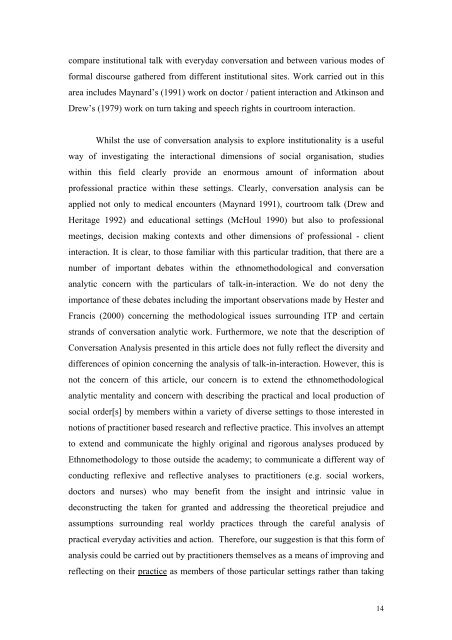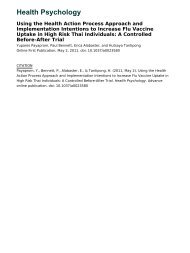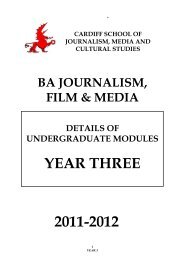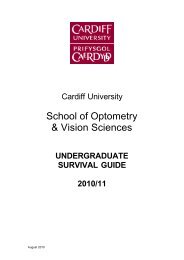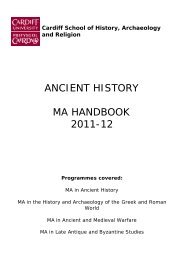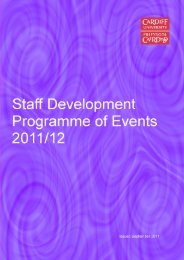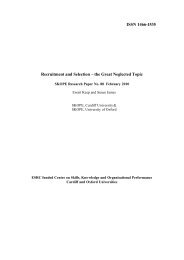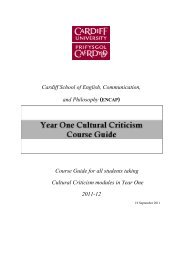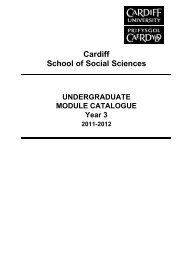Paper 89: Conversation Analysis, Practitioner Based Research ...
Paper 89: Conversation Analysis, Practitioner Based Research ...
Paper 89: Conversation Analysis, Practitioner Based Research ...
Create successful ePaper yourself
Turn your PDF publications into a flip-book with our unique Google optimized e-Paper software.
compare institutional talk with everyday conversation and between various modes of<br />
formal discourse gathered from different institutional sites. Work carried out in this<br />
area includes Maynard’s (1991) work on doctor / patient interaction and Atkinson and<br />
Drew’s (1979) work on turn taking and speech rights in courtroom interaction.<br />
Whilst the use of conversation analysis to explore institutionality is a useful<br />
way of investigating the interactional dimensions of social organisation, studies<br />
within this field clearly provide an enormous amount of information about<br />
professional practice within these settings. Clearly, conversation analysis can be<br />
applied not only to medical encounters (Maynard 1991), courtroom talk (Drew and<br />
Heritage 1992) and educational settings (McHoul 1990) but also to professional<br />
meetings, decision making contexts and other dimensions of professional - client<br />
interaction. It is clear, to those familiar with this particular tradition, that there are a<br />
number of important debates within the ethnomethodological and conversation<br />
analytic concern with the particulars of talk-in-interaction. We do not deny the<br />
importance of these debates including the important observations made by Hester and<br />
Francis (2000) concerning the methodological issues surrounding ITP and certain<br />
strands of conversation analytic work. Furthermore, we note that the description of<br />
<strong>Conversation</strong> <strong>Analysis</strong> presented in this article does not fully reflect the diversity and<br />
differences of opinion concerning the analysis of talk-in-interaction. However, this is<br />
not the concern of this article, our concern is to extend the ethnomethodological<br />
analytic mentality and concern with describing the practical and local production of<br />
social order[s] by members within a variety of diverse settings to those interested in<br />
notions of practitioner based research and reflective practice. This involves an attempt<br />
to extend and communicate the highly original and rigorous analyses produced by<br />
Ethnomethodology to those outside the academy; to communicate a different way of<br />
conducting reflexive and reflective analyses to practitioners (e.g. social workers,<br />
doctors and nurses) who may benefit from the insight and intrinsic value in<br />
deconstructing the taken for granted and addressing the theoretical prejudice and<br />
assumptions surrounding real worldy practices through the careful analysis of<br />
practical everyday activities and action. Therefore, our suggestion is that this form of<br />
analysis could be carried out by practitioners themselves as a means of improving and<br />
reflecting on their practice as members of those particular settings rather than taking<br />
14


